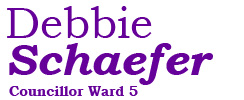As the Province is amending the municipal elections act (Bill 181) I have made a motion for discussion at May 16 Council on campaign financing. I am seeking support for a resolution that we encourage the Province to ban Corporate and Union donations to municipal campaign. I believe it is necessary as without it, i.e. today, there is not a level playing field for candidates: candidates can choose to receive donations from corporations and unions and others choose not to because they want no encumbrance, nor perceived encumbrance, to placing priority on the concerns of their constituents.
Current draft of Bill 181 provides municipalities the choice to implement such a ban with a by-law. This is not adequate nor appropriate.
- If so inclined, each municipality will have to draft the by-law banning corporate and union donations, post notice of public meeting, hold a public meeting and conduct debate. Municipalities, the Staff and Council members are very busy these days; asking each municipality to do this work is an unnecessary burden. What new information could be revealed by having this exercise done 443 times? (There are 444 municipalities in Ontario but Toronto already has this legislative authority and has enacted.)
- Furthermore, I am skeptical that each municipality will undertake the work of creating its own by-law. Some won’t because of the effort, which I have described above. Others won’t because of self interest. At the municipal level we lack the attention of the fifth estate which has brought attention to this same problem at the Provincial level; hence, there will not be the same pressure on elected officials to do the right thing i.e. to ban donations from corporations and unions.
In addition I have asked Staff to provide a report on the option providing rebates for donations made to candidates in a municipal election; and in addition to look at option of such incentive coming via a tax credit. If both the ban and the latter method for incenting donations was implemented the process for municipal elections would mirror what is in place at Federal level.
I have been inspired on both of these issues by Campaign Fairness which has been lobbying for this for several years.
Finally, for the record, I have not taken donations from corporations nor unions in either of my campaigns.
Here is the motion with the resolution to encourage Province to ban corporate and union donation in municipal campaigns. I would like to hear what you think about this?

I totally support your motion to ban corporate and union donations and applaud you for not taking those types of donations. I also like your idea of have a municipal tax credit if you donate to a municipal campaign. How can we expect ordinary citizens to donate to municipal elections without any tax reduction when the same citizens get tax credits if they donate at the federal or provincial level.
A more effective way to minimize
corruption in politics is for the government to grant an equal sum to
Each candidate for their campaign .
Break the law and you get a fine of
$25,000. Plus 3 months on jail. If a
corporation breaks the law increase the fine to $100,000. plus jail the CEO
for 6 months.
My personal experience with my
municipal government, on a scale of 1-10, would be rated as -10. And it had nothing to do with campaign fairness.
Hello John, To respond to 2 of your points. 1st, I agree that there should be penalties. A big hurdle to that is actual rigorous enforcement of the rules; as it stands today I believe, there needs to be a complaint by a citizen about a candidates’ campaign finances before there is investigation. 2nd…yes, campaign fairness i.e. a level playing field in terms of election campaign funding does not guarantee quality of government; but I do believe that it does set the stage that voters have the opportunity to vote in/out candidates based on a voter’s satisfaction.
Debbie, I could not agree more. What is democracy when elections can be bought?